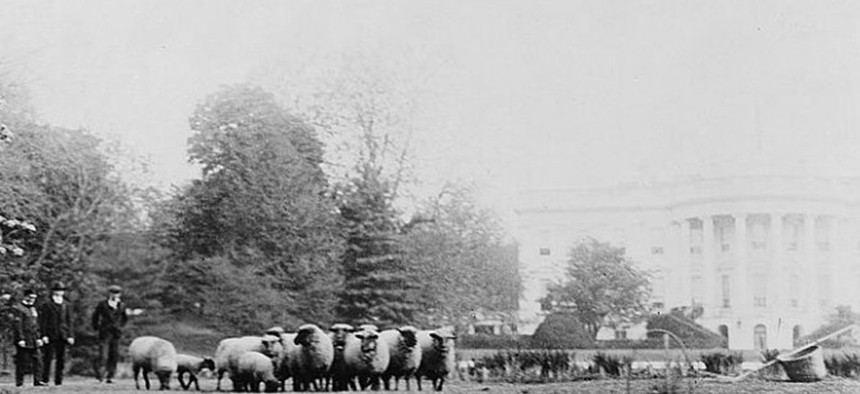
Library of Congress
President Woodrow Wilson wanted sheep.
It was 1918, and "while riding in one of the White House automobiles through the country with Dr. Grayson [a personal friend] the president remarked that he would like to see some sheep at the White House, and that Mrs. Wilson would like to see them, too," according to a Washington Post report from April of that year.
It was settled. "President Wilson intends to raise some sheep on the White House lawn," the story surmised. And it was a nice enough idea. Wilson and his wife, according to the White House history website, wanted to be the model family for supporting the war effort. Over the next two years, auctions of the White House wool would yield $52,000 for the Red Cross.
But trouble lurked.
"President Wilson is having no end of trouble with the flock of sheep he purchased recently to graze on the White House lawn," a May 12, 1918, Washington Post article reported. The problem: The sheep were scared of the cars that had started to appear across the District of Columbia in increasing numbers.
"Two of the sheep developed serious illness yesterday and are under the care of specialists from the Department of Agriculture," the Post's reporting continued.
The animals had been getting along nicely, until yesterday. The fact that one of the sheep has the "dips" is said to be due to the fact that it became frightened by passing automobiles and similar noises to which it was not accustomed.
By 1920, the flock had grown to 48 and had "eaten up nearly all the grass in the rear" of the White House. Seeing the destruction of the White House backyard, Wilson ordered the flock to graze in the front, prompting frantic preparations to fence in "the numerous flower beds and the more delicate trees which adorn the front lawn to save them from the flock," a Post story from that May states.
But by August of that year, Wilson had had enough of the sheep. "President Wilson has decided to retire from the sheep business," the Post declared.
NEXT STORY: U.S. Hospitals Aren't 'Ebola-Ready'










